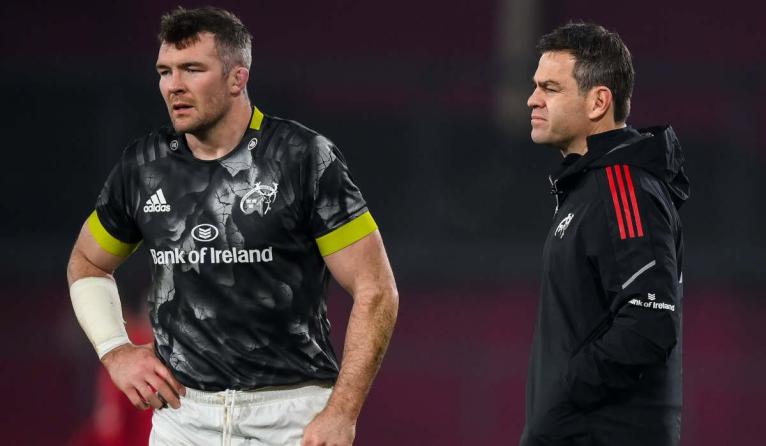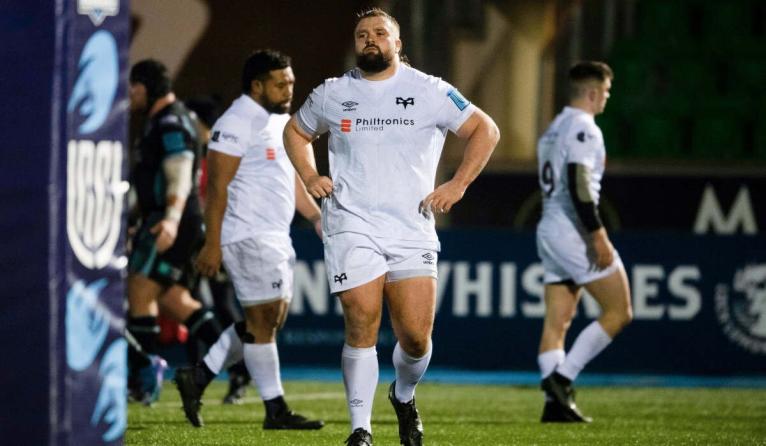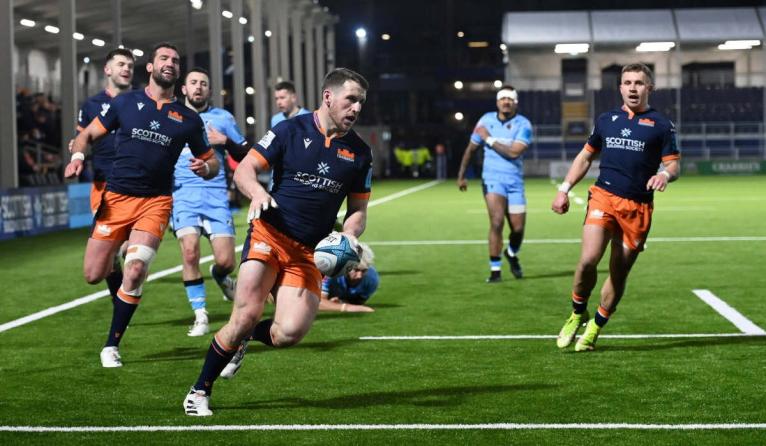Rugby has turned into 2022 with renewed resolve. Hopeful that this will be the year that saw them kick the pandemic into touch and prosper without the threat of restrictions. While crowds cheered on fixtures in England with lashings of drama, it was left to the players to add the storylines with the absence of their beloved fans. Fortunately, in both domestic leagues, they did not let the paying public down…
Wasps dent Tigers’ perfect record
It had to happen. Leicester Tigers had to lose a game. According to statistician Stuart Farmer, Steve Borthwick’s 16-game winning run had been their best since 1983-84, in which they were humbled by, you’ve guessed it, Wasps.
The game will not go down as a modern-day classic but the way Lee Blackett’s men celebrated at the end, you would be excused for not believing a Premiership title was on the line during the Noughties, when both sides were sparring at the top of the table on a regular basis.
It has been a patchy period for Wasps. They’ve had numerous Covid-absences, injury-induced gaps in their playing reserves, headed by household names Joe Launchbury, Jack Willis and Malakai Fekitoa and seen crowds dwindle as blue seats have replaced fans clad in black and gold.
A tightening of belts has also seen Thomas Young announce his departure to join father (and ex-Wasps coach, Dai in Cardiff), Vaea Fifita’s departure is expected imminently, just months after settling in, and the rumours of departures will continue to swirl as they fight to duck under the £5m salary cap like a limbo dancer, even though they picked up the notable signature of Vincent Kock from Saracens.
It is against this perilous backdrop that the players screamed into the heavens at the final whistle, with Alfie Barbeary, who had another seismic game on his return from injury, at the forefront. Barbeary and Julian Montoya’s collision in midfield sounded like a thunderclap, such was the ferocity of the contact. It signified that neither East Midland rival was to take a backward step.
Leicester, for their part, will lick their wounds. They have had a mighty season, and are still heavily backed to make the play-offs in an almost perfect season.
With winless Bath overturning Worcester and Bristol skating around Sale Sharks on Friday night, the old cliché that the league is rugby’s most competitive runs true and Wasps will enter a European double-header against Toulouse and Munster with renewed vigour.
‘Normal week’ in Munster – it has been anything but
Keith Wood was on his weekly slot on the popular Irish sports radio show, Off The Ball, last week. A fine analyst, the former British and Irish Lion is consistently measured in his views, not shy to deliver a strong opinion but frequently fair and balanced when he does so. Then came this bombshell. “I’d rather the coaches left now than stay and play that level of turgid nonsense,” said Wood.
Others have chimed in, Donal Lenihan, Munster captain in the 1980s, also expressed his concern about Munster’s style of play. Peter Stringer, the scrum half who played 230 games for the province, told the viewers on the Irish national broadcaster, RTÉ, that he wondered if the head coach, Johann van Graan, ‘still wants to be here’. Van Graan is due to leave Thomond Park to join Premiership strugglers Bath at the end of this season.
All this came before Munster delivered a come-from-behind win against rivals Ulster on Saturday night, doing something that serial URC champions, Leinster, and French heavyweight, Clermont, failed to achieve this season.
In his post-match press briefing, Van Graan was asked about the ‘outside noise’ and whether the criticism was affecting either him or his team. “No,” he said, “it has just been a normal week.”
You’d hate him to live through an abnormal one.
What’s fascinating about all this is the conflict that exists between the views of the outside world and those inside Munster. Van Graan has a 69 per cent win ratio from his four years in Limerick; he has taken Munster to two Champions Cup semi-finals and to three URC semi-finals as well as last year’s final. Their win ratio last season stood at 80 per cent. This year they have won six of their eight matches, their season disrupted by three covid-related postponements, thereby inhibiting their hopes of building a rhythm and flow to their performances.

In Europe, only one side, Harlequins, are ahead of them in their Conference, effectively guaranteeing them a place in the knock-outs. And yet, one by one, former legends of the club are taking it in turns to criticise the departing coach.
To the outside world, it is a mystery. Stringer mentioned the club’s history in his RTÉ interview, and yes, it’s storied. Between 2000 and 2010 they won two Heineken Cups, were beaten finalists on two other occasions, and reached a further five semi-finals.
But that was one decade. Otherwise, success has come and gone like the tide in Limerick. In the old amateur era, Munster’s record in Ireland’s inter-provincial series was so-so – once they went 16 years without an outright win in the competition. Then professionalism dawned and they had 10 good years sandwiched in between some middling ones.
The results we’ve seen under Van Graan are bettered – in percentage terms – by just one of Munster’s head coaches in the professional era: Rassie Erasmus.
But Munster rugby isn’t about percentage figures, said Stringer. “That stat stands for many other clubs around the world but there are two reasons why it doesn’t stand up here, because of our history, and because of Leinster’s success up the road.”
That essentially gets to the crux of this debate. The way Munster look at themselves is different to the picture an outsider has.
Fallen giants are everywhere to be seen in European rugby. Look at Bath, Van Graan’s new club. Look at two-time winners, Wasps. Look at Toulon or former finalists, Biarritz, Perpignan and Stade Francais. Leicester are flying now but it wasn’t too long ago when the word crisis was openly bandied about in Welford Road.
All this while, Munster have been knocking on glory’s door. They have been to five Champions Cup semi-finals in the last decade, five URC semi-finals and three finals but haven’t been good enough to get across the step. Is Van Graan a success or a failure? That’s the big issue in Irish rugby right now. The outsider says yes, but an increasing number of Munster fans and ex-players are saying no.
Welsh regions take one hell of a beating
In every fan’s mind, there is a natural pecking order. Now of course rose-tinted specs are worn by every partisan supporter, but in Wales, there was an acceptance that the might of Leinster and Munster were comfortably stronger than the regions, but they argued that at least they have bragging rights over Scotland’s duo, Edinburgh and Glasgow. After all, Welsh regions have registered six Celtic leagues since 2004, compared to Glasgow’s 2014-15 triumph.
Only this weekend there was compelling evidence that the Scottish sides were immeasurably better than their Welsh counterparts with the aggregate score 72-29, as they were outgunned ten tries to two. Indeed, if you look at every metric, two Welsh regions packed with internationals came second-best, unless you count missed tackles, which was a porous 41. It was a concerning weekend for everyone involved in Welsh rugby with the Six Nations game against Ireland just four weeks away. Of course, Wales have shown on countless times that they can grab victory from the jaws of defeat but pulling the proverbial rabbit out of a hat shouldn’t be the default setting.

Now of course, there are caveats. A good chunk of Cardiff’s players hadn’t been in action since mid-October after the South African palaver, so were understandably rusty, and it is well-documented that the regions hardly have Elon Musk’s bank balance, but you would need the chutzpah of Prince Andrew’s lawyer to argue that the non-performances were a good look.
The current shut-out of fans in Wales has not helped lift spirits, and there have even been calls to reduce the regions from four to three to make them more competitive. The current status-quo is slowly sapping away the passion for the game which has seen crowds dip – when allowed – in recent years.
One sliver of optimism was announced with the signing of Vaea Fifita, the 11-cap All Black who has been excelling at Wasps this season. As lucky recipients, the Scarlets, along with the other Welsh regions can only hope this trickle of talent from the cash-strapped Gallagher Premiership continues.
Inactive service
Few teams impressed more than Ireland in the November series but it’s worth looking more closely at what has happened since – or rather what hasn’t happened. Injury and covid-enforced postponements has prevented Johnny Sexton, James Ryan and Jack Conan playing since November.
They’re fit again but Ulster’s Iain Henderson and Jacob Stockdale haven’t quite made it back. Between them, this pair have featured in just four club games all season.
At fly half, Sexton’s back-up, Joey Carbery, looks set to miss the start of the Six Nations with an elbow injury; Caelan Doris have played just 113 minutes of rugby since November, one minute more than Tadhg Furlong has managed.
Jamison Gibson-Park, Ireland’s first choice scrum-half in November, has had just one game since returning to club duty while Robbie Henshaw has played just three times all season.
Hugo Keenan, James Lowe and Josh van der Flier have managed two full games since November, Ronan Kelleher just 78 minutes, Andrew Porter 88, Garry Ringrose a comparatively busy 140. Out of Ireland’s likely starting XV for the Six Nations opener against Wales, only Andrew Conway has played more than two games since November. It’s a thin line between being fresh and rusty.
Townsend’s midfield conundrum
It is a sign of Scotland’s long-awaited midfield depth that Gregor Townsend will be doing without at least five from Sam Johnson, Chris Harris, Sione Tuipulotu, Mark Bennett, Huw Jones, Rory Hutchinson and Matt Scott come February 5 and the seismic Six Nations opener against England.
There is an unprecedented seam of talent in the Scottish centres and the coach will have a serious job picking his premier duo for the championship ahead.
Johnson and Harris have been his go-to men for much of the past three years. Both are long-time Townsend favourites; Johnson for his slick distribution and direct running; Harris for his defensive code-cracking and leg-scything.

Neither is playing poorly. In fact, both are in good form for Glasgow and Gloucester. But could their established partnership be eroded?
Might Tuipulotu, nigh-irrepressible since joining Warriors in the summer, give Scotland a few more gears in attack? Could the resurgent Bennett, finally injury-free and dazzling for Edinburgh, reclaim some of the caps lost through month after month on the treatment table? Would Scotland benefit from the outside break of Jones or Hutchinson, or the nous and streetsmarts of Matt Scott, when England’s juggernaut rumbles north?
In years gone by, Scotland bemoaned critical absentees and fretted over their lack of options. A glut of skilled operators is a welcome problem.




I cannot believe Munster beat us. We should have had them from the second that red was given.
I think that Matt Scott’s race is run. Missing that tackle against South Africa is unlikely to be forgiven.